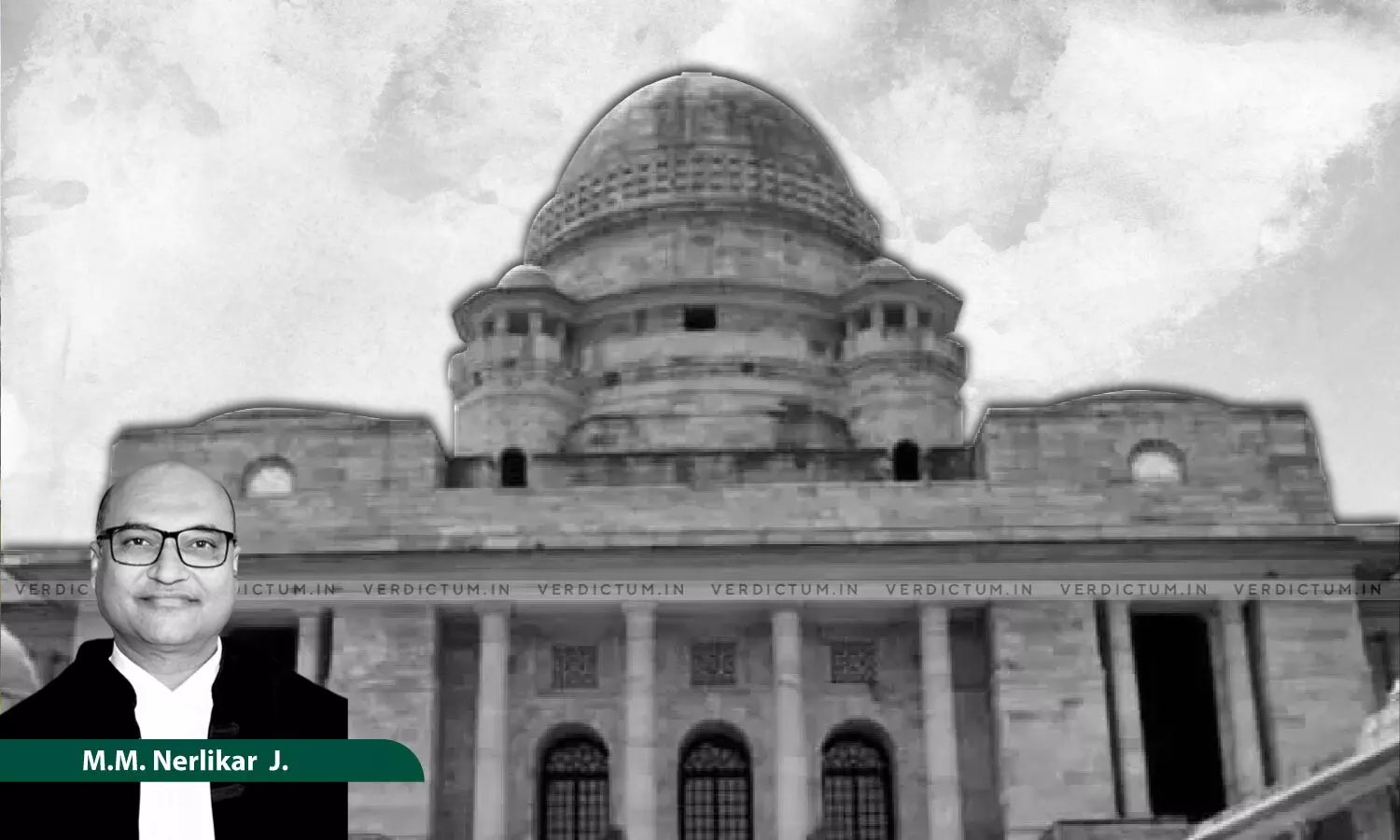
Justice M.M. Nerlikar, Bombay High Court, Nagpur Bench
Directors Of Company Remain Liable U/S 138 NI Act Even If Debt Is Resolved Under IBC: Bombay High Court Summarizes Principles
 |
|The Bombay High Court observed that the IBC and the NI Act serve different purposes and do not conflict with each other.
The Bombay High Court has summarized certain important principles with respect to the Section 138 of the Negotiable Instruments Act, 1881 (NI Act).
The Nagpur Bench was hearing a Criminal Writ Petition filed against the common Orders of the Civil Judge by which the accused persons were discharged in a cheque dishonourment case.
A Single Bench of Justice M.M. Nerlikar culled out the following key features –
(i) Section 138 NI Act proceedings are not recovery proceedings.
(ii) The Directors of the Company remain liable under Section 138 of the NI Act, even if Company’s debt is resolved under the Insolvency and Bankruptcy Code, 2016 (IBC/IB Code).
(iii) A resolution plan approved under the IB Code does not automatically extinguish the criminal liability of Directors under Section 138 of the NI Act.
(iv) Section 138 of the NI Act proceedings are penal in nature, aimed at maintaining the integrity of commercial transactions and not just compensating.
(v) The approval of a resolution plan under Section 31 of the IB Code does not automatically discharge the signatory/ Directors from the liability under Section 138 of the NI Act.
(vi) Section 32A protects the corporate debtor, but, not individuals responsible for Company’s conduct.
(vii) The IB Code and the NI Act serve different purposes and do not conflict with each other.
Advocate S.S. Dewani appeared on behalf of the Petitioner, while Advocate S.D. Khati appeared on behalf of the Respondents.
Brief Facts
The Petitioner was the proprietor of Ortho Relief Hospital and Research Centre, Nagpur and the Respondent was a company engaged in the business of liquor distillation. The other Respondents were its Directors who were responsible for its financial and business operations. They were in control of the day-to-day activities of the company, including the decision as regards financing, borrowings, repayments, etc. In 2015, they approached the Petitioner for a short-term loan of Rs. 15 lakhs. Towards the security of the said loan, they issued a post-dated cheque and the same was signed. As per the Petitioner, the Respondents acknowledged the liability and agreed to pay interest @18% p.a. However, after January 2018, they stopped making payments and despite multiple reminders, failed to respond to the same.
In February 2018, the Petitioner came to know about the insolvency proceedings initiated against the Respondent company under the provisions of the IBC. The Petitioner started persuading Respondents to repay the loan amount who assured that the insolvency proceedings would not be successful and the company would soon resume normal operations. They reassured and asked to present the cheque for encashment, which the Petitioner presented to the Banker. However, in December 2018, the Petitioner received a message regarding dishonour of the cheque with memo remarking “insufficient funds”. In view of insolvency proceedings before the National Company Law Tribunal (NCLT), Respondents filed an Application, which was allowed and they were discharged for the offence under Section 138 of NI Act. This was under challenge before the High Court.
Reasoning
The High Court in view of the above facts, observed, “… if Section 138 proceedings are initiated after the initiation of proceedings under IB Code, in such circumstances, the provision of IB Code bars initiation of proceedings under Section 138 of the NI Act. … No doubt so far as the present case is concerned, Section 138 proceedings are initiated much after the initiation of IB Code proceedings.”
The Court said that the proceedings under Section 138 of the NI Act is not a recovery proceeding and once it is held by the Larger Bench of the Supreme Court (Three Judges), that the IBC proceeding and Section 138 NI Act proceedings are altogether different, it is not open for the High Court to take a different view.
“From the above discussion it is clear that it makes no difference whether the proceedings are initiated prior to initiation of IB Code proceeding or thereafter. The Supreme Court has in unequivocal terms held that natural persons cannot escape from their personal liability under Section 138 of the NI Act. It is further held that Section 138 proceedings in relation to the signatories who are liable or covered by the two proviso to Section 32A[1], will continue in accordance with law”, it noted.
The Court reiterated that the scope of nature of proceedings under the two Acts are quite different and the nature of proceedings which have to be kept in abeyance under Section 14 of the IBC, would not include criminal proceedings, which is the nature of proceedings under Section 138 of the NI Act.
“In view of the above facts and circumstances of the present case, the Court below has lost sight of the fact that the Supreme Court has already settled this issue as discussed above, and therefore, committed a gross error in allowing the application at Exh.39, and thereby discharging the accused nos. 2 and 3 for the offence punishable under Section 138 of the NI Act”, it concluded.
Accordingly, the High Court allowed the Writ Petition and quashed the impugned Orders.
Cause Title- Ortho Relief Hospital and Research v. M/s. Anand Distilleries & Ors. (Neutral Citation: 2025:BHC-NAG:10082)